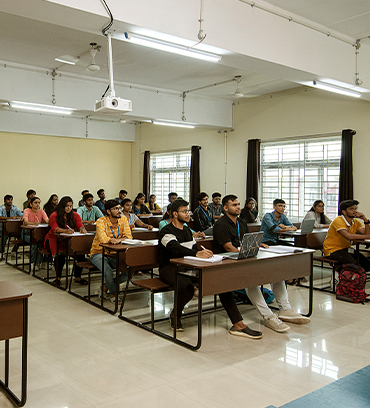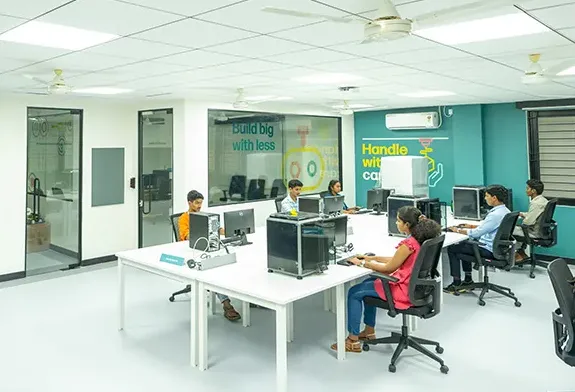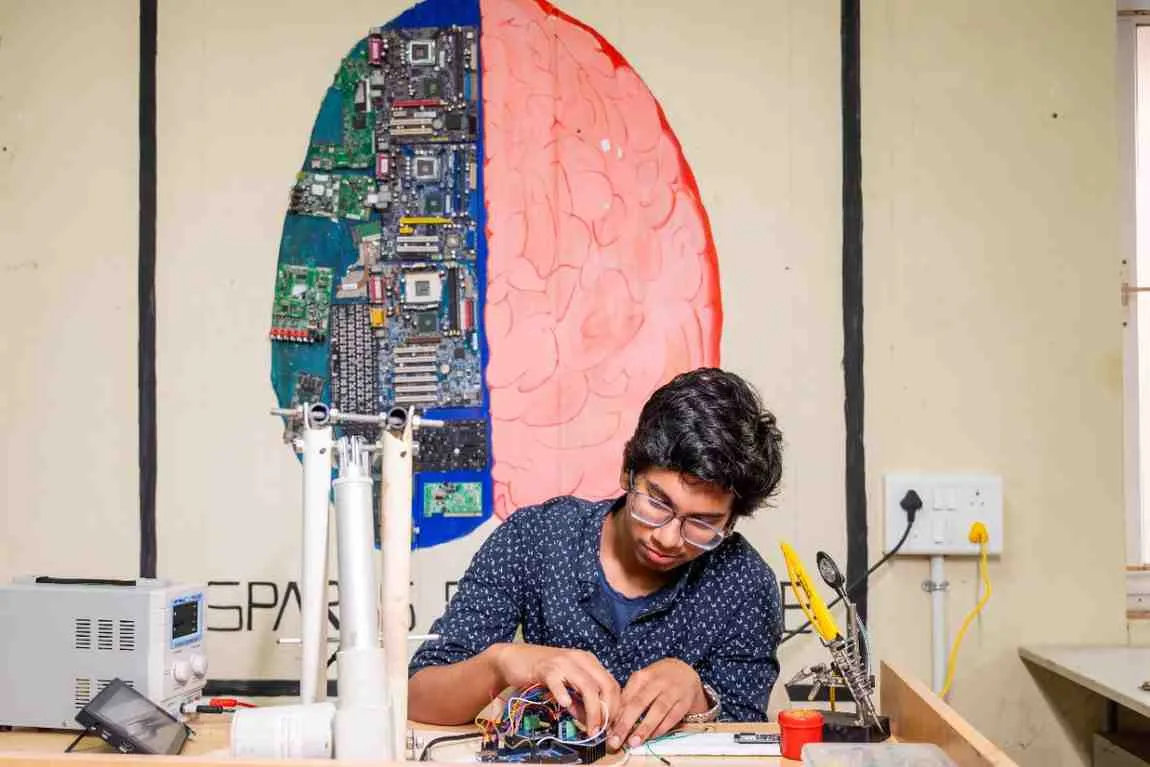PhD in Electrical and Electronics Engineering
The PhD in Electrical and Electronics Engineering at GITAM School of Technology, Bengaluru Campus, is designed to develop advanced research expertise and deep insight into emerging technologies in the electrical and electronics domains. This programme nurtures innovative thinking and problem-solving abilities, empowering students to tackle complex issues in an ever-evolving technological environment.
The curriculum is thoughtfully designed to combine in-depth theoretical knowledge with substantial hands-on experience, ensuring graduates are well-prepared to contribute to research and development in key areas such as power systems, renewable energy, smart grids, control systems, and industrial automation. Students will engage in cutting-edge research projects that are aligned with both industry advancements and societal needs, enabling them to drive meaningful innovations in the field.

Eligibility
Eligible applicants must hold a Master's degree (MTech or ME) in the relevant engineering field. Additionally, a Bachelor's degree (BE or BTech) in Electrical and Electronics Engineering (EEE) or an equivalent degree is acceptable.
Scope of the Programme
The PhD in Electrical and Electronics Engineering offers an in-depth exploration of advanced topics such as power systems, control engineering, renewable energy, smart grids, and embedded systems. Doctoral candidates will engage in pioneering research, equipping them for careers across a wide range of industries, including energy, automation, aerospace, and defence.
This programme also provides opportunities in emerging fields such as artificial intelligence, machine learning, and IoT applications in electrical systems, empowering graduates to drive innovation and contribute to transformative technological advancements.
Key Highlights
Application Domain Experience of Faculty
- Wireless Networking
- Signal Processing
- Sensor Technologies
- Telecom
- Microelectronics
- Electronics Architecture & Protocols
Centres of Excellence & Infrastructure
- Centre for Autonomous Systems
- EMI/EMC Lab
- Communications Lab
- Signal & Image Processing Lab
- Harvard-Style Classroom
Research Centres
- MURTI Multidisciplinary Research
- DRDO Multi Sensor Fusion Research
Liberal Education Model
24 credits can be earned across different Schools:
- Business
- Sciences
- Humanities
Industry & Academic Collaborations
- Robert Bosch
- LTTS
- KPIT
- DRDO
- Maini Group
Venture Development Course
- Mandatory 2-credit venture development course
- Transcending disciplinary boundaries
- Hands-on learning
- Innovative product creation with business potential
Syllabus
The curriculum is thoughtfully crafted in collaboration with esteemed academic leaders from IITs, NITs, and other top-tier institutions, along with s leading multinational companies.
Standard track course offerings
- IoT & Sensors
- Communications
- AI & ML
- Aerospace & Defense Electronics
- Software Defined Vehicles
Specialisation course bundles offered
- VLSI
- Industrial Automation
- Tele Communications
- Signal & Image Processing
Career Options
India's Electrical and Electronics Engineering (EEE) sector is a key driver of technological transformation, advancing industries such as power systems, renewable energy, smart grids, and automation. With India's electrical equipment market forecasted to double in size over the next seven years reaching a market valuation of $130 billion by 2030, PhD graduates in EEE are uniquely positioned for high-impact careers in both industrial and research-oriented sectors.
Are you ready to shape the future of India's electrical and electronics landscape?
Graduates can pursue careers as:
- Research Scientist
- Power Systems Engineer
- Control Systems Engineer
- Renewable Energy Specialist
- Embedded Systems Engineer
- Smart Grid Engineer
- Industrial Automation Engineer
- AI & ML Engineer in Electrical Systems
Star Recruiters






Notable Alumni
Infrastructure and Facilities






Fee Structure
Ph.D Electrical and Electronics Engineering
| PhD Mode of Admission | Duration | Application Fee | Annual Fee | Processing Fee (Only one time) |
|---|---|---|---|---|
| Full-Time (Indian Nationals) | 3 Years | INR 1,200 | INR 30,000 | NIL |
| Full-Time (Foreign Nationals) | 3 Years | NIL | USD 2,500 | USD 300 |
| Extramural | 4 Years | INR 1,200 | INR 1,00,000 | NIL |


































